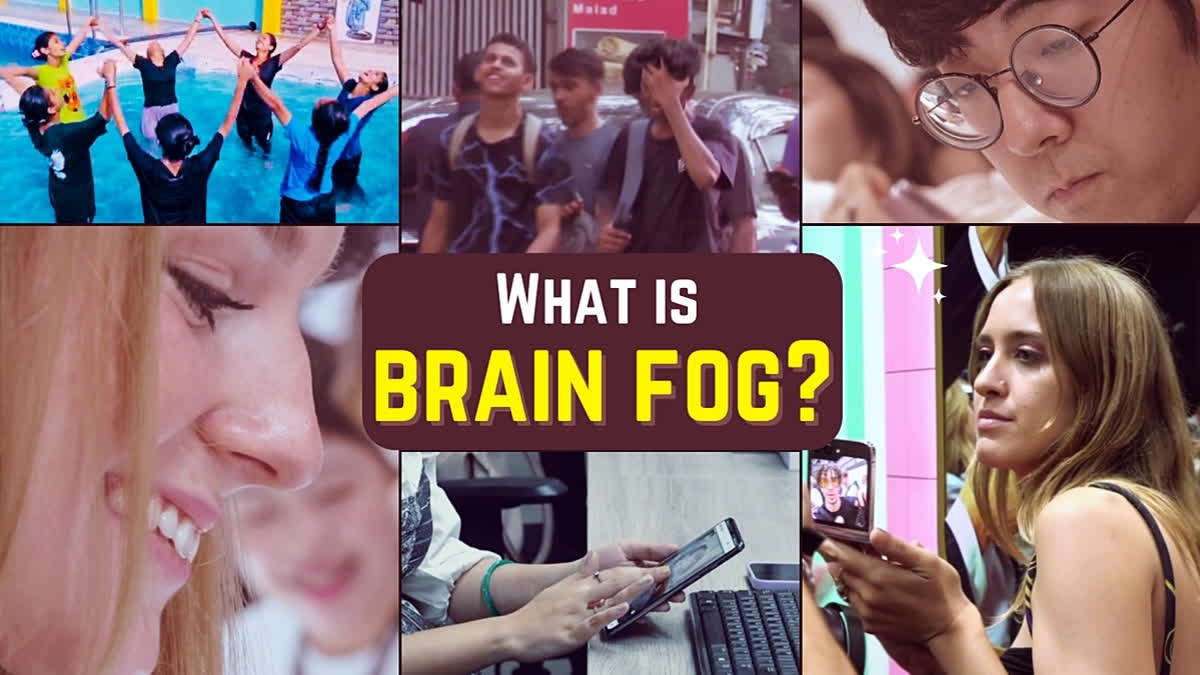Hyderabad: Mental health has emerged as a critical issue in recent years, with many individuals facing challenges that impact their overall well-being. One growing concern is brain fog, a condition marked by cognitive dysfunction, including confusion, forgetfulness, and a lack of clarity.
Though not a formal medical diagnosis, brain fog is becoming more common, especially among younger generations. Those affected often feel overwhelmed by constant stress, information overload, and mental fatigue, making it difficult to focus and think clearly.
Dr Richa Singh, Senior Neurosurgeon, at the Sir Gangaram Hospital said, "Brain fog means, brain means mastishk and fog means dhundh. It means that when your brain is not working properly the patient has many symptoms like forgetfulness, confusion, loss of tension, loss of focus, headaches, anxiety, forgetfulness or difficulty in doing some particular job or it may be because of deprived sleep. So these symptoms collectively are called as brain fogging. These are basically decline of cognitive skills. Cognitive skills, meaning memory, language, calculation, attention, concentration, consciousness.”
Brain fog can result from several common factors, such as lack of sleep, chronic stress, poor diet, and conditions like depression or long COVID.
Social media plays a significant role in exacerbating this issue, as the constant influx of information overwhelms individuals, making it harder to focus and retain what they learn.
The multitasking promoted by these platforms divides attention and hampers cognitive efficiency. Moreover, comparing oneself to idealised online personas can increase stress, further clouding mental clarity.
“If there is excessive deprivation of sleep because of excessive use of social media or nutritional deficiency or low immune system or infections or stress or any kind of nutritional deficiencies, maybe vitamin B12 or vitamin D or if there is any hormonal imbalance in the way of thyrotoxicosis or hypothyroidism, this may cause brain fogging," added Dr Richa.
To combat brain fog, individuals can adopt simple strategies such as limiting screen time and engaging in offline activities to reduce cognitive overload.
Practising mindfulness through meditation or deep breathing exercises can improve focus and lower stress levels. Regular digital detoxes provide the brain with a much-needed break. Additionally, maintaining a balanced diet and a consistent sleep schedule are essential for improving mental clarity.
Psychologist Dr Arvind Otta, said, "We have to understand that if any individual is not taking quality sleep, then there will be a problem in memory, there will be problems in concentration. So to get quality sleep before one hour of bed, before one hour of sleep, we have to stop using any kind of screen. Second, a nutritious diet. If any individual consumes junk food excessively, we have to stop consuming them or we need to decrease them significantly. Physical activity is also the kind of thing that can help us to come out from brain fog. Physical activity means you can participate in, right, running, yoga, meditation too, that can help individuals. And last but very important, avoiding digital overstimulation."
Brain fog is becoming increasingly common, particularly among the younger generation like Gen Z. The pressure to maintain a digital persona and the disruptions caused by the COVID-19 pandemic have only intensified these challenges. Addressing brain fog is crucial for the mental well-being of young people navigating today's fast-paced digital world.



